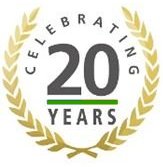|
Please Consider Helping to Keep This Website Online.
|
|
Thinking In Gaelic III - Some Stuff to Know by Sítheag Nic Trantham bean Bochanan
Weekdays:
Seasons:
Time of day: The Gaels did not take the introduction of months of the year very well, considering that these were basically an instrument of Romanisation. However, for spite's sake more than anything, they adopted a Gregorian-type calendar consisting of months named for Celtic holidays as opposed to Roman Emperors or gods. Gaelic society did not revolve around deadlines and human affairs, but rather around nature, the seasons, and the cycles of animals. But, for the sake of those who cannot live without using month names, here they are:
Gaelic Months: As you can see, the months revolve around principals of agriculture, animal husbandry, and human fertility of mind and body. The Gaels were and are very devoted to their kinship with nature, and practiced "Earth Stewardship" with the zeal commonly attributed to Native American tribes. A noble endeavor, even today. Also, the Celtic society was one that had no guilt associated with natural human reproduction and physical pleasure, and thus had many festivals (as often as they could!) to embrace the symbols of reproduction and pleasure: hence the wrapping of the Maypole on Mayday (a representation of the copulation of Goddess and her consort to last until Halloween when the pole is symbolically unwrapped). In rural Ireland today, young girls still place phallic symbols ( lit candles, or daggers) in tiny beds made for the goddess Brigid (Bride, St. Brigit) on the night of Imbolc, in order to insure that her consort will find comfort there. The Celtic Light Goddess is Brigid, better known as St. Bridgette, the "foster mother of Jesus". Her name is where we get the word "bride". Her name in Scot's Gaelic is pronounced like "breed". She also claims the whole of Great Britain as her namesake. Wells, symbols of the female reproductive organ, are named in her honor all over the English, Welsh, Scottish, and Irish countryside, Still today we toss pennies into wells and fountains to make a request of her. HERE ARE SOME GAELIC WORDS AND PHRASES THAT ARE USED IN ENGLISH: COMMON GAELIC GREETINGS AND DEPARTURE PHRASES: prepared by Sítheag Nic Trantham bean Bochanan |
|
'Clannada na Gadelica' is a trademark of the Clannada na Gadelica.
|
|
Heart in Hands
Support the |

